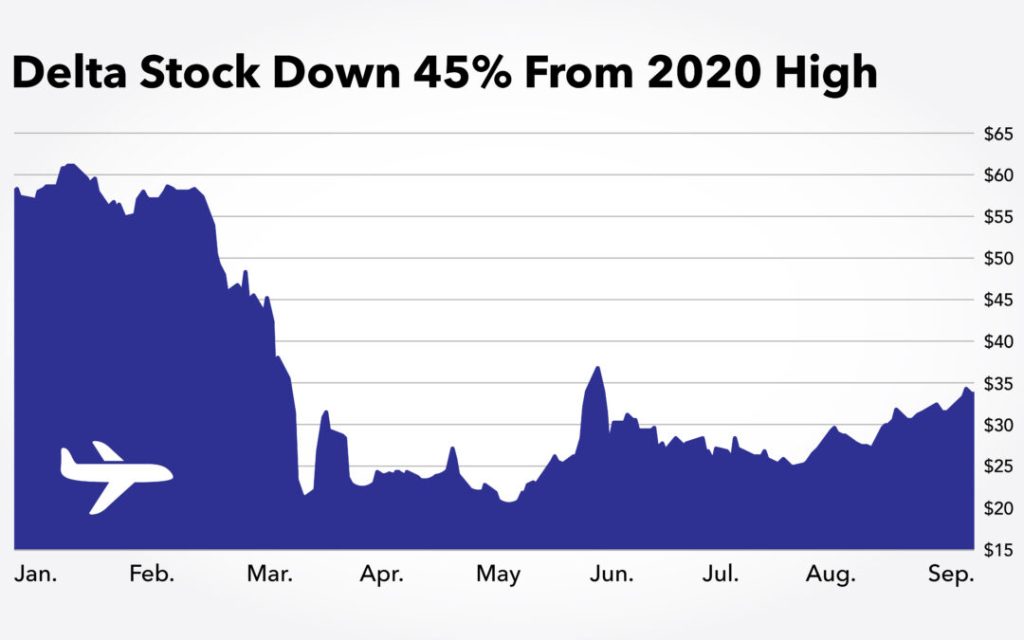When evaluating investment opportunities in the airline industry, Delta stock is often a key consideration for investors. Delta Air Lines (NYSE: DAL) is one of the largest global airlines, with a strong market presence and an extensive route network. Understanding the performance, prospects, and challenges of Delta stock can help investors make informed decisions. This article explores Delta stock’s financial outlook, competitive position, and potential for growth.
Delta Stock Overview
Delta Air Lines is a major player in the aviation industry, providing passenger and cargo services across the globe. Listed on the New York Stock Exchange under the ticker symbol DAL, Delta’s stock is widely traded and attracts both institutional and retail investors.
Performance of Delta Stock
Delta stock has shown resilience over the years, navigating through economic downturns, fluctuating oil prices, and global pandemics. Here’s a look at some of the factors affecting Delta stock’s performance:
- Revenue Streams: Delta generates revenue from passenger tickets, cargo services, and ancillary services like premium seat upgrades and loyalty programs.
- Profitability: Delta has historically maintained competitive profit margins, supported by operational efficiency and a focus on customer satisfaction. Its loyalty program, SkyMiles, also contributes significantly to its earnings.
- Dividend Payments: Before the COVID-19 pandemic, Delta stock was known for its consistent dividend payouts. While dividends were suspended during the pandemic, investors are hopeful about their reinstatement as the airline industry recovers.
Key Factors Impacting Delta Stock
- Fuel Prices: As a major expense for airlines, fluctuations in fuel prices directly impact Delta’s profitability. The company’s fuel hedging strategies often play a critical role in mitigating this risk.
- Travel Demand: The performance of Delta stock is closely tied to global travel demand. Economic growth, consumer confidence, and tourism trends significantly influence Delta’s revenues.
- Competition: Delta operates in a highly competitive industry, facing challenges from legacy carriers like American Airlines and United Airlines, as well as low-cost carriers such as Southwest Airlines.
- Sustainability Initiatives: Delta has committed to achieving net-zero carbon emissions by 2050. This focus on sustainability can enhance its appeal to environmentally conscious investors.
Why Consider Investing in Delta Stock?
- Market Leadership: Delta is a leader in the aviation industry, with a robust operational network and strong customer loyalty.
- Post-Pandemic Recovery: With global travel restrictions easing, Delta is well-positioned to capitalize on the growing demand for air travel.
- Diversified Revenue Sources: Delta’s partnerships with other airlines and its focus on premium services provide a buffer against market volatility.
- Operational Efficiency: Delta’s strategic investments in modernizing its fleet and optimizing routes contribute to its long-term profitability.
Risks Associated with Delta Stock
While Delta stock offers opportunities, potential investors should also consider the risks:
- Economic Sensitivity: Airlines are highly sensitive to economic cycles. Recessions or slowdowns can lead to reduced travel demand.
- Geopolitical Issues: Global events such as wars, terrorism, or political instability can negatively impact international travel.
- Debt Levels: Delta, like many airlines, carries significant debt. Monitoring the company’s ability to manage and reduce this debt is essential for long-term investors.

How to Analyze Delta Stock
When evaluating Delta stock, investors should focus on the following metrics:
- Earnings Per Share (EPS): Indicates the company’s profitability and is a key driver of stock performance.
- Price-to-Earnings (P/E) Ratio: Helps assess whether Delta stock is overvalued or undervalued compared to its peers.
- Dividend Yield: If dividends are reinstated, this metric will be crucial for income-focused investors.
- Debt-to-Equity Ratio: Provides insight into the company’s financial health and ability to manage debt.
Conclusion
Delta stock presents a compelling opportunity for investors looking to gain exposure to the airline industry. With its strong market position, efficient operations, and growth potential in the post-pandemic era, Delta offers a mix of stability and opportunity. However, investors should remain vigilant about external risks such as economic downturns and fuel price volatility.
For personalized investment advice and real-time market analysis, explore the advanced tools and expert guidance offered by JD Trader. Our platform is designed to help you navigate the complexities of the stock market with confidence. Whether you’re a seasoned investor or just starting, JD Trader is your partner in financial success.
